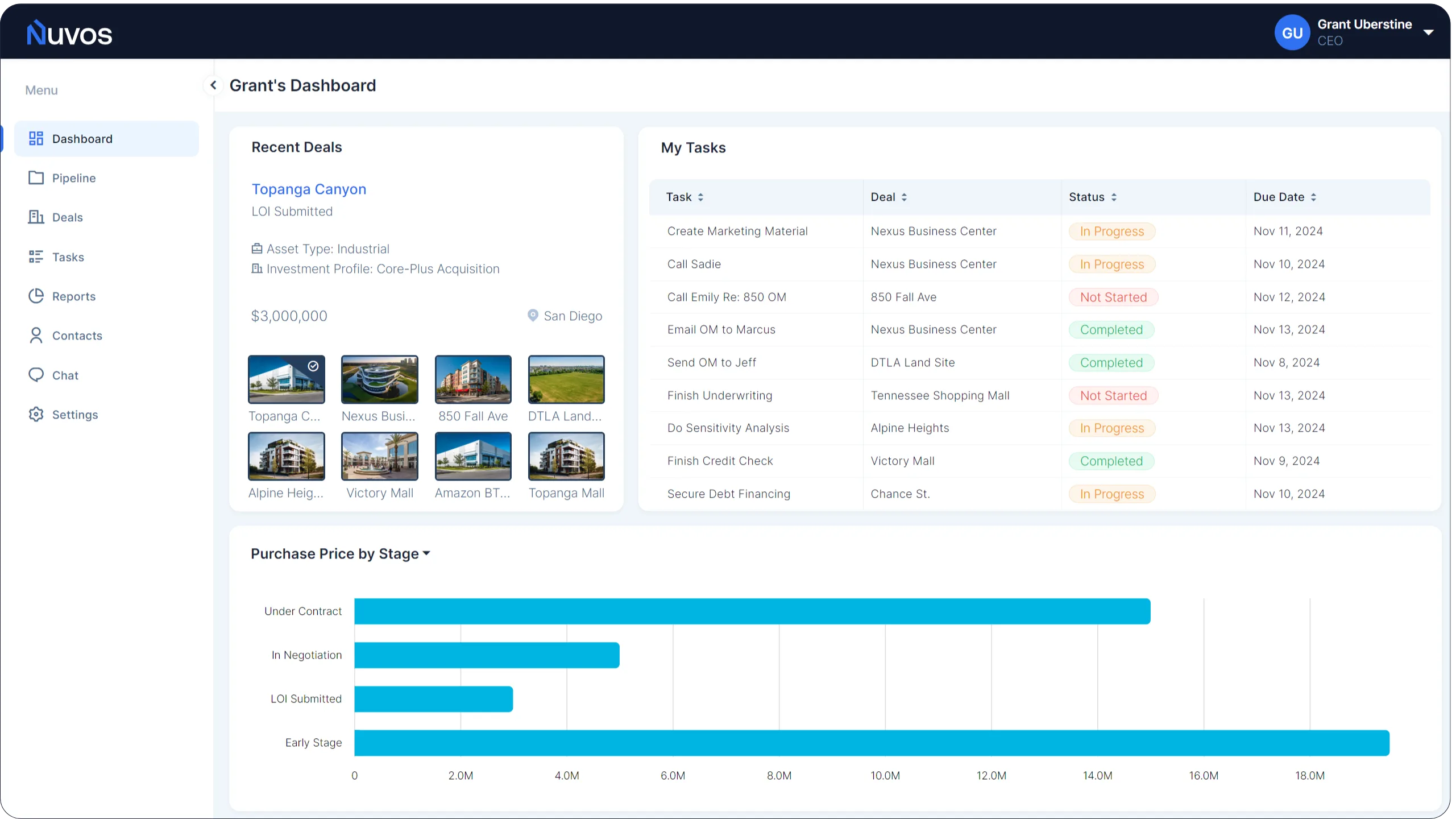How Developers Kept NYC Thriving in 2023
Uncertainty looms over the real estate landscape, but developers in NYC continue to demonstrate resilience in the face of rising interest rates, supply-chain issues, and policy changes.
Together with
Good morning. Despite hurdles in commercial real estate, NYC developers display resilience and a bullish outlook. Ashford Hospitality Trust, unable to meet mortgage payments, is set to hand over 19 hotels to lenders. Concurrently, the self-storage industry thrives as individuals amass more belongings yet continue to grapple with home space constraints.
Today’s edition is brought to you by FNRP. Learn how you can diversify your portfolio with necessity-based commercial real estate.
Market Snapshot
|
|
||||
|
|
*Data as of 7/07/2023 market close.
👋 First time reading? Sign up here.
MAKE IT THERE
New York City Developers Forge Ahead Despite Policy Challenges

Uncertainty looms over the real estate landscape, but developers in NYC continue to demonstrate resilience in the face of rising interest rates, supply-chain issues, and policy changes.
Signs of hope: Over the past year, the city’s top builders have filed plans for 16.7MSF of new development, 1MSF more than the previous year. And while challenges persist, developers are optimistic about the city’s recovery from the pandemic.
Leading the way: In spite of the termination of the favored 421a tax relief and approaching construction deadlines, developers are unwavering in their pursuit of new projects. Chetrit Group leads, with plans for nearly 2 million square feet of development across three projects. Extell Development follows with four projects totaling 1.5 million square feet. Finally, Domain Companies is planning roughly 1.3 million square feet of development across three projects.

From the horse’s mouth: Schwartz stated, “Without active and progressing projects in our pipeline, we typically find ourselves in a holding pattern, which is regrettable considering the current situation.” He added, “We are very optimistic about New York, but we cannot ignore the real threat posed by the affordability crisis.”
Uneven office: As life in the city returns to a relative post-pandemic normal, only 42% of companies are mandating full-time office return. Despite this, developers insist that NYC’s premium office market is quietly thriving with ongoing projects and high occupancy rates in prime districts. However, they highlight a shortage of large, modern office spaces, causing competition and displacement among businesses.
➥ THE TAKEAWAY
Rate risk vs. reward: Developers foresee interest rate volatility as a significant future challenge, adding to market uncertainty and complicating property price predictions. However, this could also offer opportunities, as the financial pressure on some owners could allow well-funded developers to enter ownership groups at advantageous prices, potentially yielding higher future returns.
TOGETHER WITH FNRP
Invest in Workforce Housing in the Sunbelt
First National Realty Partners is inviting accredited investors to partner with them on their latest investment opportunity: Parkside Place.
Parkside Place is a leasehold ownership position in a 321-unit multifamily investment property located in Houston, TX that has the potential to generate attractive risk-adjusted returns for investors by way of planned renovations, increasing rents, and a full tax abatement through a partnership with the Southeast Texas Housing Finance Corporation.
FNRP, with $2+ billion-dollar assets under management, was one of the most active acquirers of necessity-based CRE in 2022 and generated investors an average of 19%+ IRR on full-cycle deals.
As a vertically-integrated private investment firm, FNRP has a team of over 130 full-time real estate experts dedicated to sourcing, managing, and optimizing your investment from start to finish.
To get access to Parkside Place and FNRP’s many other hand-picked retail, industrial, and multi-family deals, Create an Account Here.
This post contains sponsored advertising content. Past performance is not indicative of future results.
MORTGAGE DEFAULT
Ashford Hospitality Trust Inc. to Return 19 Hotels to Lenders

Ashford Hospitality Trust’s properties include two Atlanta showcase hotels – the W and the Ritz-Carlton.(Ashford Hospitality)
Ashford Hospitality Trust Inc. (AHT-G), based in Dallas, is planning to hand over 19 hotels to lenders in cities like Plano, Las Vegas, and Atlanta.
Debt details: This came after Ashford missed a repayment deadline in June for a $982M mortgage pool. Keeping the hotels requires a paydown of around $255M and an additional $80M in capital expenditures by 2025. However, due to the properties’ negative equity based on comparable sales, Ashford is calling it quits.
Extension deals: Ashford has successfully negotiated debt extensions for 15 other hotels within the portfolio by providing a total of $129M in paydowns, including three Texas properties – Hilton Fort Worth, Marriott Suites Dallas, and Lakeway Resort Austin. Management of the hotels stated those properties are located in markets that have experienced significant post-pandemic recovery challenges and are not expected to reach pre-pandemic revenue levels until 2025–2026.
Upcoming debt maturity: Following the resolution of the hotel transfers, Ashford Trust’s next debt maturity is a Morgan Stanley loan pool, secured by 17 hotels, that matures in November. The company believes this loan will be extendable without needing a paydown, providing some relief moving forward.
➥ THE TAKEAWAY
Rising rates, plunging prices: The hotel industry, like many others, continues to grapple with the aftermath of the pandemic. With higher rates and declining values, many lenders now require borrowers to pay down debt or contribute additional capital for property expenses in order to extend loan terms. By the end of 2H23, hotel values had fallen 3% from their recent peak, compared to a 16% drop for all CRE types and a 31% plunge for offices, according to Green Street.
AROUND THE WEB
📖 Read: Stefan Soloviev, son of the late real estate tycoon Sheldon Solow, debuted at TRD’s annual NY conference. Labeled “real estate’s newest rock star,” Soloviev cut his teeth building a Midwestern grain business but is now also a major CRE power player in NYC.
🎧 Listen: WSJ personal-finance reporter Veronica Dagher discusses how homeowners can prevent their insurance from being canceled and what they can do if it is, as more people in the U.S. are losing their home insurance coverage due to storms, lawsuits, and rebuilding costs.
🤝 Attend: Here are 9 CRE events and conferences in 2H23 that you shouldn’t miss, featuring insights, networking opportunities, and the latest trends in the industry.
GOT STORAGE SPACE?
Self-Storage Stays Resilient Despite Economic Challenges
While much of CRE continues to stall, the self-storage sector continues to look recession-resistant, if not recession-proof.
Sometimes it’s the only option: The homebuyer squeeze means more Americans are still renting smaller spaces and lack sufficient space within their homes and apartments to store all their possessions. With more family members per household over time, Americans just keep accumulating stuff. And they need to put it all somewhere.
Does it spark joy? Who cares? Additionally, the popular trend of decluttering is not always followed through. Sorry, Marie Kondo. Most people can’t afford to think in those terms. With limited options to relocate to larger properties, many individuals choose to remain in their current residences and utilize self-storage units to store their extra belongings rather than toss them.
Continued growth and demand: The self-storage industry experienced steady growth throughout the pandemic and maintained its strength in 1Q23. This demonstrates the industry’s resilience and ability to navigate economic challenges. Gen Xers and female renters in particular are driving the demand for self-storage units.
➥ THE TAKEAWAY
Sound investment in turbulent times: Self-storage looks like a relatively secure investment option right now, despite economic uncertainty. The asset’s recession-resistant nature, driven by the need for additional storage space and the reluctance of people who are already penny-pinching to move to larger residences or throw out material possessions indicates that the future of the sector looks bright.
✍️ Daily Picks
-
Property leaderboard: The Nareit All Equity REIT Index rose 5.36% in June, with timber and office REITs leading the way.
-
The plot thickens: Flannery Associates spent $1B in the last five years to acquire land near an Air Force base in Solano County, CA. The U.S. government wants to know who they represent.
-
Construction booms: Multifamily completions are set to reach over 520K units this year, driven by the Southern US, despite a potential slowdown in multifamily starts.
-
Distribution king: Bluerock Total Income+ Real Estate Fund has paid over $1B in total distributions since its inception in 2012, with 42 consecutive quarterly distributions.
-
Optimizing corporate CRE: Cost savings are a priority in business, but nearly 50% of companies fail to meet targets (Deloitte), risking innovation and opportunities (Gartner).
-
Dirty donations: In Manhattan, six people have been charged with funneling straw donations to Eric Adams’ mayoral campaign for political favors.
-
Curing diseases worldwide: BioMed Realty’s Gateway of Pacific complex in South San Francisco is the largest concentrated life science campus globally.
-
Raise of the day: Austin-based Endeavor Real Estate Group closes $610M private equity fund for development and acquisition of multifamily, industrial, retail, and mixed-use.
-
Pricing shift: The Green Street Commercial Property Price Index decreased by 0.8% in June, down 16% from its March 2022 peak.
-
The Southern Shift: Money has shifted from the Northeast to the South, with six Southern states contributing more to GDP than the Northeast.
-
Scaling down, building up: Goldman Sachs (GS) is downsizing its regional campus in Dallas, reducing it by 100KSF and changing the number of floors in three buildings.
📈 Chart of the Day
The top 10 markets that experienced significant rent growth in 2021 have now seen their rent growth rates slow down two to three times quicker than the national average.
What did you think of today’s newsletter? |
HIT THE INBOX OF 65K+ CRE PROFESSIONALS
Advertise with CRE Daily to get your brand in front of the Who’s Who of commercial real estate. Subscribers are high-income decision makers, investors, and C-suite executives always looking for their next investment, product, or tool.
*Advertising disclosure: Weighted Net IRR is defined as the average annualized, compound rate of return using equity contributions and distributions as they occurred on specific dates during the investment period. IRR is reflective of all fees charged and paid to First National Realty Partners, LLC and its affiliates and subsidiaries. An investment in commercial real estate is subject to risk, including the risk that all of your investment may be lost. Any representations concerning investing in commercial real estate; to include representations as to stability , diversification, security, resistance to inflation and any other representations as to the merits of investing in commercial real estate reflect our belief concerning the representations and may or may not come to be realized.




















